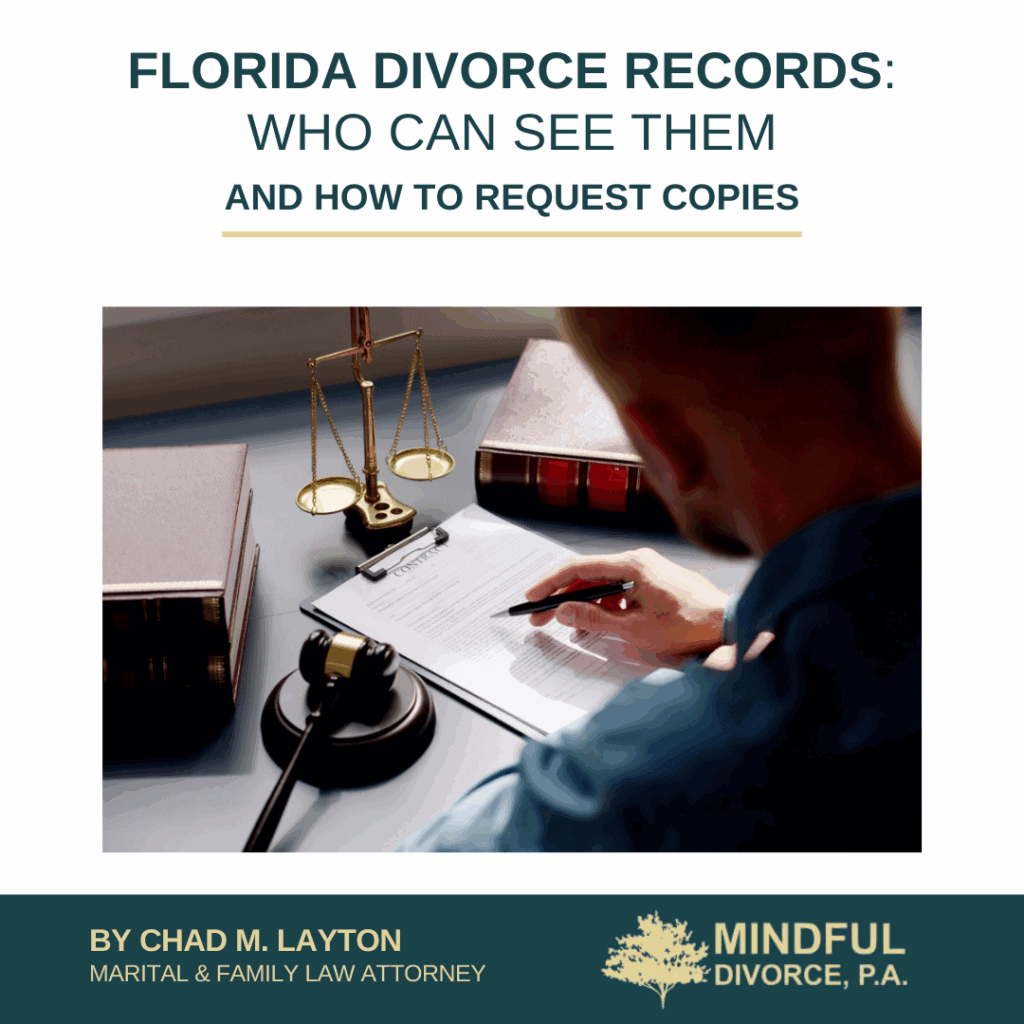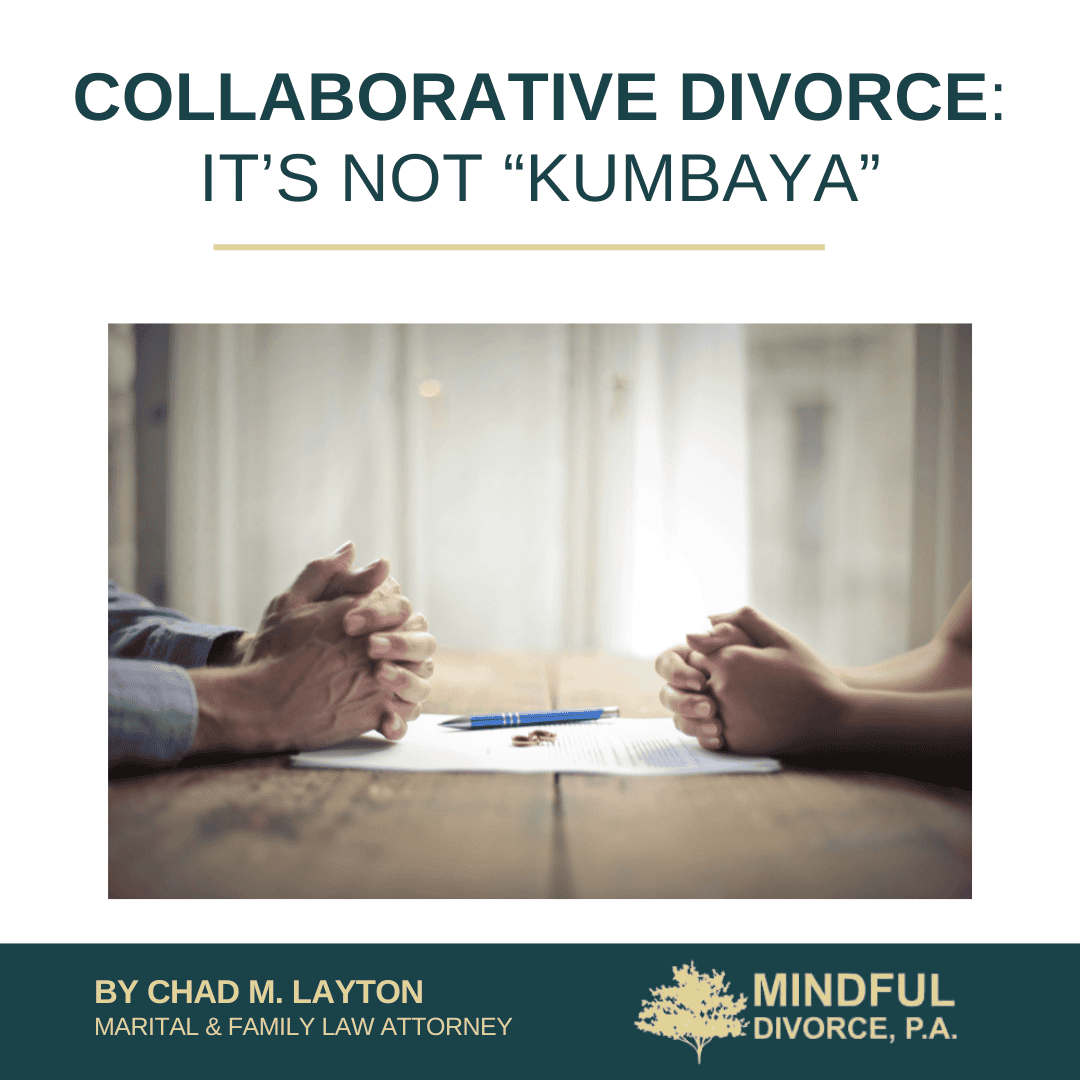
Divorce is hard on the heart and the wallet, and simple questions can feel heavy when you are already worn out. One common question we hear is about records: who can view them, and how do you get copies without hitting dead ends. At Mindful Divorce, P.A., we focus on transparent, fixed-fee services, so your energy stays on healing rather than surprise bills.
In this article, we explain how Florida divorce records work, who can see them, and the easiest ways to request copies. Knowing your rights and the right steps can save time and stress.
Overview of Divorce Records in Florida
Divorce records document the end of a marriage. People request them for legal reasons, personal verification, name changes, or even family history research. In Florida, these records sit within court files, and many parts are viewable by the public.
Florida law generally treats court records as open records. However, certain sensitive details, like Social Security numbers or bank numbers, are redacted to protect privacy.
With that foundation in mind, let’s look at who is allowed to request and view these records.
Who Can Access Divorce Records in Florida?
In most cases, Florida divorce records are public documents. You do not need to be a party to the case to look them up or order copies. You just need enough details to find the file, such as names and the approximate date of the divorce.
People who commonly request divorce records include:
- Either the former spouse or their attorneys.
- Family members verifying marital status for benefits or estate matters.
- Employers or background screeners with a lawful reason.
- Researchers or the public when allowed by the court’s access rules.
If a judge sealed parts of a file, access to those parts will be limited. Redacted copies are often provided when sensitive data is present.
Now that you know who can view the records, it helps to understand the kinds of documents you can request.
Types of Divorce Records Available
The most requested document is the Final Judgment of Dissolution of Marriage. This is the court order that ends the marriage and states the date the divorce became final. It may also reference orders about alimony, parenting time, and property division.
Other records can include pleadings, motions, hearing notices, and financial filings. Some details in these documents can be limited online, and you may need to register or visit the clerk to view images, depending on the county’s system.
Here are details you typically see on a final judgment:
- Names of both parties and the case number.
- The date the dissolution was granted.
- References to custody, support, or alimony orders.
Once you know what you need, you can pick a request method that fits your schedule.
How to Request Divorce Records in Florida
You can request records through the Florida Department of Health, Bureau of Vital Statistics or through the county Clerk of Court that handled the case. The state issues a divorce certificate abstract, while the county keeps the full court file and the final judgment.
Online Requests
Online is the quickest path for many people, especially if you already know the county and the year of the case.
- Visit the Florida Department of Health, Bureau of Vital Statistics site or the website of the Clerk of Court where the divorce was filed.
- Go to the vital records or public records section, then open the online request form or search portal.
- Enter the names of both parties and the divorce date, or the case number if you have it.
- Pay the required fee by credit or debit card.
- Review your entries carefully before submitting to prevent delays.
Some counties require you to create a free user account to view court document images online. This is normal and helps protect sensitive information.
If online tools do not work for you, a short letter can get the job done.
Mail-in Requests
You can mail your request to the Florida Bureau of Vital Statistics or to the county Clerk of Court. This method helps if you prefer paper, or if you want a certified copy mailed to you.
- Include the case number or book and page if known, the year of the case, and the names of both parties.
- Add a self-addressed stamped envelope to speed up return mail.
- Pay by cashier’s check or money order as required by the office receiving your request.
Some offices charge a small search fee when the year is unknown. Check the office website for the current rate before you mail your request.
If you want same-day help, visiting the clerk can be a good move.
In-Person Requests
Visit the Clerk of Court in the county where the divorce took place. Staff can guide you to the records room, help you identify the correct case, and print copies for a fee.
- Common payment methods include cash, credit or debit cards, cashier’s check, or money order.
- Bring a government ID if you plan to register for online image access at a public terminal.
If your divorce was finalized very recently, the county clerk is the best starting point since the Bureau of Vital Statistics can take about 60 days to receive the report from the clerk.
Certified Copies of Divorce Records
Certified copies are stamped by the issuing office and used as official proof of divorce. You might need a certified copy to remarry, update vital records, or confirm a name change.
You can request a certified divorce certificate from the Florida Department of Health, Bureau of Vital Statistics. For the full final judgment or other filings, request a certified copy from the county Clerk of Court that handled the case.
Florida Divorce Records: Where to Request and What You Receive
| Source | What You Receive | Request Methods | Payment Options | Helpful Notes |
| Florida Department of Health, Bureau of Vital Statistics | Divorce certificate abstract | Online, mail, walk-in | Cards, check or money order for mail, cash in person | The state file is usually available from 1927 to present. Recent cases can take up to about 60 days to appear. |
| County Clerk of Court | Final judgment and other court filings | Online search, mail, in person | Varies by county, often cards, cash, cashier’s check, or money order | Some counties require a free user account to view images. Certified copies are available by request. |
Next, let’s cover cost and timing since those are the two things everyone asks about first.
Fees and Processing Times
Fees differ by office and by the kind of record requested. A divorce certificate from the Bureau of Vital Statistics has a base fee, with extra charges for additional copies, rush service, or searching multiple years when the date is unknown.
County clerks set their own copy and certification fees. Many offices post the current fee schedule on their website, so check there before you submit your request.
Processing time varies with the method you choose:
- Online requests are usually the fastest option for certificates or clerk copies.
- Mail-in requests take mailing time both ways, plus processing time in the office.
- In-person requests can be done the same day if the file is already imaged and ready to print.
If your search hits a wall, a few simple checks often solve the problem.
Troubleshooting: What If You Can’t Find a Record?
Small errors can stall a search. Start by confirming spelling, maiden names, nicknames used in the case, and the county where the divorce was filed. Check the year range, too, since the state certificate search can charge a small fee per extra year when the date is unknown.
If online searches do not produce results, reach out to the Clerk of Court in the county where you believe the case was handled. A clerk staff member can help you search by party name or guide you to the right case number.
- Try alternate spellings for last names and broaden the date range by one or two years.
- Confirm that the divorce was granted in Florida rather than another state.
- If the divorce was very recent, contact the county clerk first, then the state for the certificate once the 60-day window passes.
If you are also dealing with custody, support, or property issues, record requests are only one piece of the puzzle.
Going Through a Divorce? Contact Us for Assistance
At Mindful Divorce, P.A., we guide clients with calm, clear steps and fixed-fee options that lower stress during a tough season. If you want steady help that keeps costs predictable, we are ready to talk through your goals and protect what matters most. Call 561-537-8227 or reach us through our Contact Us page to schedule a consultation. We welcome your questions and look forward to helping you move forward with confidence.



